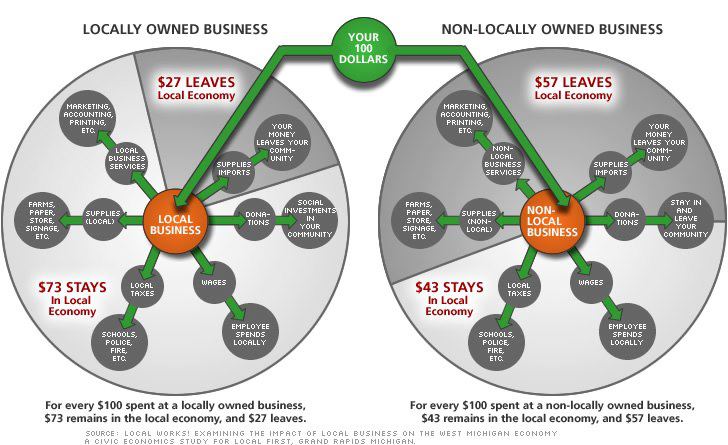"According to Susan Witt, Executive Director of the E.F. Schumacher Society, "buy local" campaigns serve another function: alerting a community about gaps in the local market. This is the way product innovations get made."
"Buy Local"—you see the decal in the store window, the sign at the farmer's market, the bright, cheerful logos for Local First Arizona, Think Boise First, Our Milwaukee, and homegrown versions across the states. The apparent message is "let's-support-local-business", a kind of community boosterism. But buying close to home may be more than a feel-good, it's-worth-paying-more-for-local matter. A number of researchers and organizations are taking a closer look at how money flows, and what they're finding shows the profound economic impact of keeping money in town—and how the fate of many communities around the nation and the world increasingly depend on it.
Read more via Time Business & Money.
Read more via Time Business & Money.

 RSS Feed
RSS Feed